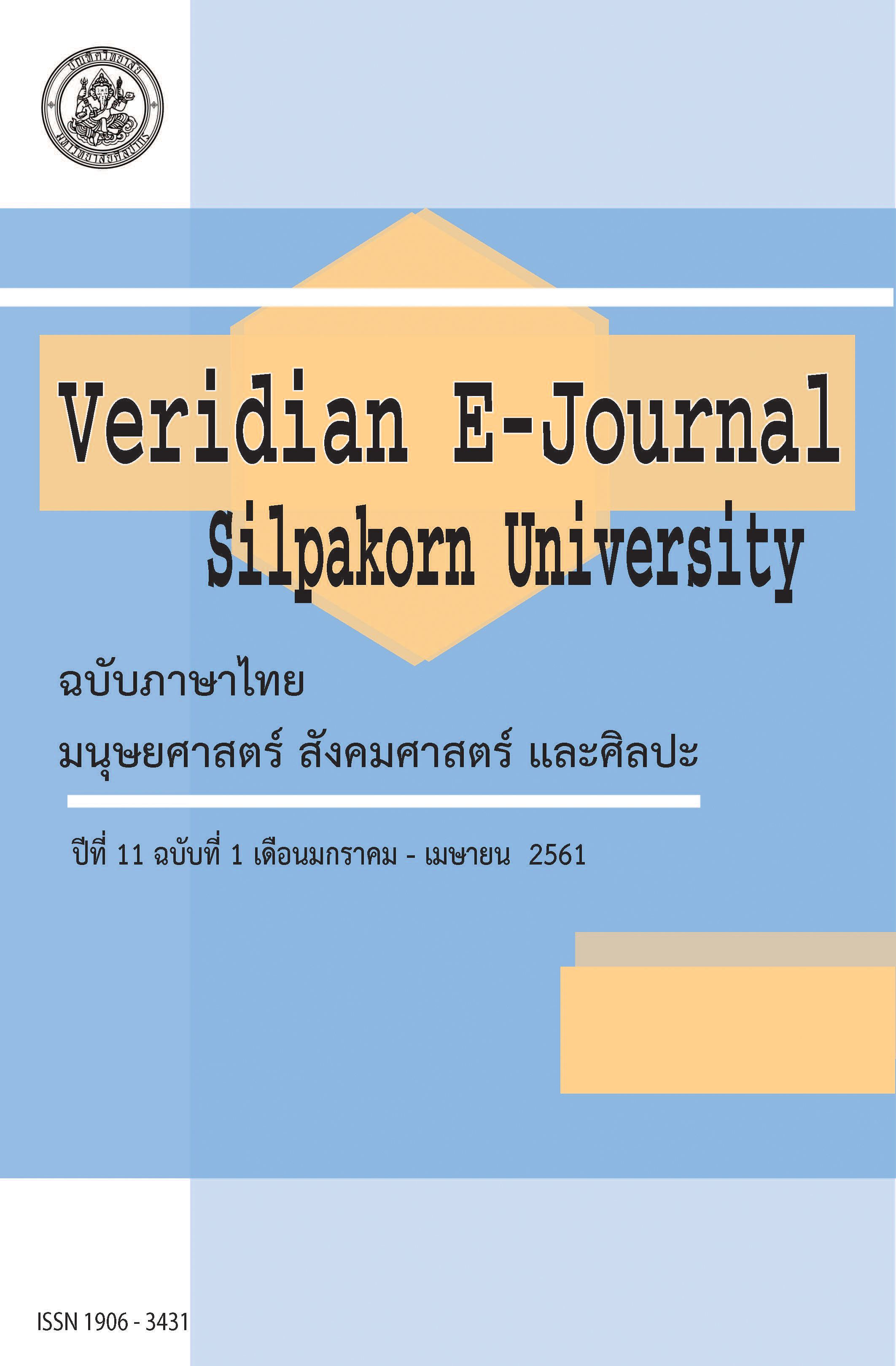อนาคตภาพสมรรถนะของผู้บริหารสถาบันการศึกษาพยาบาลในทศวรรษหน้า (Scenario of Competencies of Nursing Education Institute Administrator during the Next Decade)
Main Article Content
Abstract
การวิจัยครั้งนี้เป็นการวิจัยเชิงอนาคต มีวัตถุประสงค์การวิจัยเพื่อ 1) ฉายภาพสมรรถนะของผู้บริหารสถาบันการศึกษาพยาบาล และ 2) นำเสนอแนวทางการพัฒนาสมรรถนะของผู้บริหารสถาบันการศึกษาพยาบาล ในทศวรรษหน้า
การดำเนินการวิจัยแบ่งเป็น 2 ระยะ ระยะที่ 1 การศึกษาสมรรถนะของผู้บริหารสถาบันการศึกษาพยาบาลในทศวรรษหน้า ผู้ให้ข้อมูล คือ ผู้เชี่ยวชาญ จำนวน 20 คน ประกอบด้วย คณบดี/ผู้อำนวยการสถาบันการศึกษาพยาบาล สังกัดกระทรวงศึกษาธิการ จำนวน 9 คน สังกัดกระทรวงสาธารณสุข จำนวน 9 คน และสถาบันการศึกษาพยาบาลของเอกชน จำนวน 2 คน เครื่องมือการวิจัย คือ 1) แบบสัมภาษณ์แบบมีโครงสร้างเกี่ยวกับสมรรถนะของผู้บริหาร 2) แบบสอบถามเกี่ยวกับสมรรถนะที่จำเป็นของผู้บริหาร มีค่าความตรงอยู่ระหว่าง 0.80 -1.00 วิเคราะห์ข้อมูลด้วยการวิเคราะห์เนื้อหา ร้อยละ มัธยฐาน และ พิสัยระหว่างควอไทล์ ระยะที่ 2 การศึกษาแนวทางการพัฒนาสมรรถนะของผู้บริหารสถาบันการศึกษาพยาบาลในทศวรรษหน้า ผู้ให้ข้อมูล คือ ผู้เชี่ยวชาญ จำนวน 9 คน ประกอบด้วย ผู้บริหาร/อดีตผู้บริหารสถาบันการศึกษาพยาบาลของรัฐ จำนวน 5 คน ผู้บริหาร/อดีตผู้บริหารสถาบันการศึกษาพยาบาลของเอกชน จำนวน 2 คน นักวิชาการที่มีผลงานด้านการพัฒนาสมรรถนะผู้นำทางการพยาบาล จำนวน 2 คน เครื่องมือการวิจัย คือ ร่างแนวทางการพัฒนาสมรรถนะจากผลการวิจัยระยะที่ 1 วิเคราะห์ข้อมูลด้วยการวิเคราะห์เนื้อหา การแจกแจงความถี่ และร้อยละ
ผลการวิจัย ปรากฏว่า 1) สมรรถนะของผู้บริหารสถาบันการศึกษาพยาบาลในทศวรรษหน้า ประกอบด้วย 1.1) สมรรถนะหลัก ได้แก่ การตระหนักรู้มีวินัยในตนเอง ซื่อสัตย์ยึดมั่นคุณธรรม สามารถประสานงาน สื่อสารและเจรจาต่อรอง เอื้ออาทรและเสียสละ ใฝ่รู้และพัฒนาตนเองอย่างต่อเนื่อง และรับฟังคำวิพากษ์วิจารณ์เพื่อพัฒนาตนเอง 1.2) สมรรถนะด้านการบริหาร ได้แก่ ความสามารถในการบริหารคุณภาพการศึกษา กล้าตัดสินใจ มีภาวะผู้นำ โปร่งใส ยุติธรรม เข้าใจวัฒนธรรมอันหลากหลาย การบริหารการเปลี่ยนแปลง และนำเทคโนโลยีมาใช้ในการบริหารจัดการ 1.3) สมรรถนะตามตำแหน่งงาน ได้แก่ มีความรู้ความสามารถในศาสตร์วิชาชีพและการประกันคุณภาพการศึกษาพยาบาล สามารถบริหารเวลาและทำงานอย่างมีดุลยภาพด้วยข้อมูลเชิงประจักษ์ เป็นที่ปรึกษาทางการวิจัย แก้ปัญหาในงาน สอนงาน สืบค้นงานวิชาการจากเครือข่ายสื่อสารอิเล็กทรอนิกส์ และสื่อสารด้านภาษาอังกฤษ และ 1.4) สมรรถนะองค์การ ได้แก่ วิเคราะห์จุดอ่อน จุดแข็งขององค์กร กำหนดวิสัยทัศน์องค์กรได้ชัดเจน ริเริ่มสร้างสรรค์งานใหม่ ท้าทายความสามารถของคนในองค์กร ปรับกระบวนทัศน์ในการทำงานให้ทันต่อการเปลี่ยนแปลง และสร้างชื่อเสียงให้องค์กรเป็นที่ยอมรับ และ2) แนวทางการพัฒนาสมรรถนะผู้บริหารสถาบันการศึกษาพยาบาลในทศวรรษหน้า ประกอบด้วย 2.1) หลักการ ได้แก่ (2.1.1) หลักการเรียนรู้แบบผู้ใหญ่ โดยการชี้นำตนเองด้วยความเป็นอิสระและรับผิดชอบตนเองในการเรียนรู้จนเกิดการเปลี่ยนแปลงสู่การพัฒนาและเรียนรู้ตลอดชีวิต และ (2.1.2) แนวคิดของจิตตปัญญาศึกษา โดยการพัฒนาตนเองจากภายในทั้งความรู้สึกนึกคิด แรงจูงใจ ความต้องการการตระหนักรู้นำไปสู่การเรียนรู้และพัฒนาตนเอง 2.2) วัตถุประสงค์เพื่อให้ผู้บริหารสามารถบริหารสถาบันการศึกษาพยาบาลสอดคล้องกับบริบทที่เปลี่ยนแปลงได้ 2.3) เนื้อหาการพัฒนาสอดคล้องกับสมรรถนะของผู้บริหารที่ต้องการพัฒนา 2.4) วิธีการพัฒนา ได้แก่ การฝึกอบรมในงาน และการฝึกอบรมนอกงาน ยึดหลักการวิเคราะห์และสะท้อนกลับความต้องการเรียนรู้และพัฒนาตนเอง สืบค้นข้อมูลอิเล็กทรอนิกส์ ใช้กระบวนการแลกเปลี่ยนเรียนรู้ ใช้ระบบพี่เลี้ยงและการดูงานจากบุคคลต้นแบบ และ 2.5) การประเมินผล ได้แก่ ประเมินผล ก่อน ระหว่าง และหลังการพัฒนาสมรรถนะ ประกอบด้วย การประเมินความพึงพอใจ ความสามารถ และ ผลสัมฤทธิ์ของการพัฒนาสมรรถนะ
This research was a future scenario research with the following objectives: (1) to project the future scenario of competencies of nursing education institute administrator; and (2) to propose guidelines for developing competencies of nursing education institute administrator in the next decade.
The research process comprised two phases. Phase 1 was a study of competencies of nursing education institute administrator in the next decade. The key informants were 20 experts comprising nine deans/directors of nursing education institutes under the Ministry of Education, nine deans/directors of nursing education institutes under the Ministry of Public Health, and two deans/directors of private nursing education institutes. The employed research instruments were (1) a structured interview form on competencies of nursing education institute administrator; (2) a questionnaire on necessary competencies of nursing education institute administrator, with the IOC for validity ranging from 0.80 to 1.00. Research data were analyzed with the use of percentage, median, inter-quartile range, and content analysis. Phase 2 was a study of guidelines for developing competencies of nursing education institute administrator in the next decade. The key informants were nine experts comprising five administrators/former administrators of state nursing education institutes, two administrators/former administrators of private nursing education institutes, and two academics who had work outputs on development of competencies of nursing education institute administrator. The employed research instrument was a draft of guidelines for developing competencies of nursing education institute administrator based on the results of Phase 1. Data were analyzed with the use of content analysis, frequency, and percentage.
Research findings revealed that (1) competencies of nursing education institute administrator in the next decade comprised (1.1) main competencies which consisted of the awareness and possession of self-discipline; honesty and adhering to ethical principles; ability to coordinate, communicate and negotiate; generosity and self-sacrifice; avidity for learning and continuous self-development; and listening to criticism for self-development; (1.2) administrative competencies which consisted of the ability to administer educational quality; the courage to make decisions; having leadership; transparency; being fair and just; understanding of diversified cultures; ability to manage changes; and the application of technology in management and administration; (1.3) position-related competencies which consisted of professional knowledge and ability on nursing education and nursing education quality assurance; ability to manage time and work with equilibrium with the use of empirical data; ability to be advisor of research projects; ability to solve work performance problems; ability to teach work performance to subordinates; ability to retrieve academic information from electronic networks; and ability to communicate in English; and (1.4) organizational competencies which consisted of the ability to analyze weaknesses and strengths of the organization; ability to determine the vision of the organization; ability to initiate or create new works that challenge the ability of organizational personnel; ability to adjust work paradigm to cope with changes; and ability to create good reputation for the organization; and (2) guidelines for developing competencies of nursing education institute administrator in the next decade comprised (2.1) the principles which consisted of (2.1.1) the principle of adult learning with independent and responsible self-directing to transform and develop oneself toward lifelong learning; (2.1.2) the concept of mental and wisdom education by inner self-development including the feeling, thinking, motivation, needs, awareness, all of which leading to learning and self-development; (2.2) the objective which was to enable the administrator to administer nursing education institute to cope with the changing context; (2.3) the contents of development being in accord with the administrator’s competencies that need to be developed; (2.4) the development methods which were on-the-job training and off-the-job training which adhere to the principle of analysis and reflection of the needs to learn and develop oneself; electronic data retrieval; the use of learning exchange and sharing of knowledge; the mentoring system; and the learning from model persons; and (2.5) evaluation which consisted of pre-evaluation, formative evaluation, and summative evaluation; while the purposes of evaluation were to evaluate the satisfaction, abilities, and achievement of competency development.

